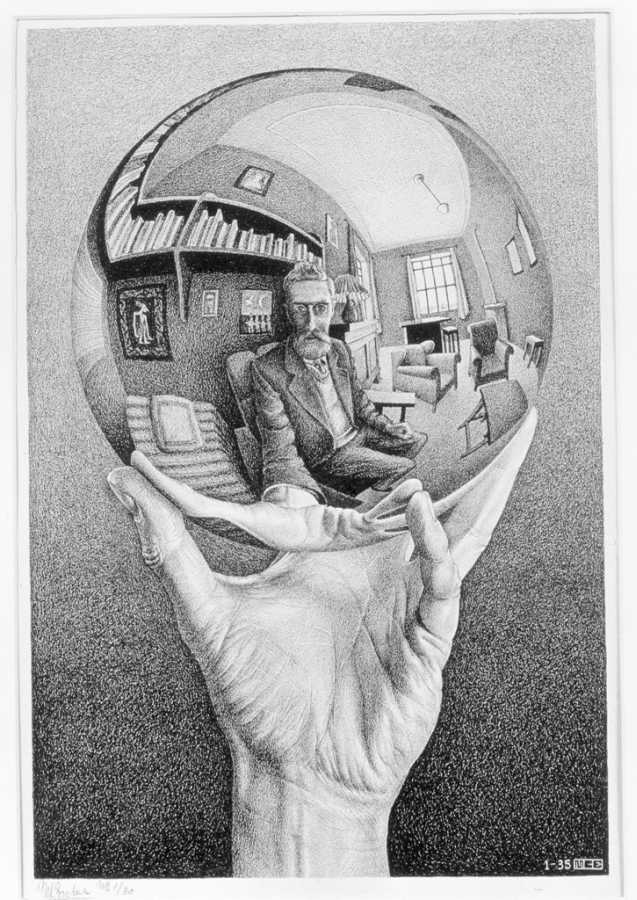The concerns people have about AI primarily revolve around the accessibility of models, which translates to monopolistic control over them. While it should be a cause for celebration that machines capable of solving previously non-algorithmizable intellectually labor-intensive and/or routine tasks are emerging, people tend to project this onto the dominant model of societal organization and their own role within it. Given that a significant portion of the population in developed countries is engaged in routinized non-algorithmizable idleness, it’s hardly surprising that this majority would suddenly feel the instability of their status and dependence on those who pay them for it. Well, perhaps this is an inevitable awakening.
the spirit of Kracauer
… contemporary anthropologists (at least all those I’ve read so far) believe that myths have not disappeared but have transformed into new roles, such as pop science, corporations, and ideologies. All true, except for one thing. Such an approach (model) assumes their cultural equivalence. In the sense that our faith (quote …) in money or corporations or quantum field theory is just as ephemeral as the ancient Sumerians’ belief in Abzu and Enki.
In reality, however, such relativism runs up against the issue of proof (and falsifiability). Not that I completely disagree with this thesis, but upon closer examination, it becomes clear that myth is, in a way, a precursor to the model, in the sense that the word “model” considers science. Myth is a special case of it. That is, a model that claims to explain everything but is neither provable nor falsifiable.
Such a perspective, incidentally, opens up an interesting continuation… if at the heart of classical art-narrative myth is an inseparable part, the foundation (here we need to talk about monomyth and all that, but I’m already in my pajamas), then in modern art (including literature, film, and alike) the presence of a model in its scientific interpretation is a cornerstones criterion of validity. And here endless prospects open up…
Having thought about this, I immediately realized why most of what is now classified as so-called “media art” and exhibited here and there not only fails to inspire but, on the contrary, causes bewilderment at the mere fact of its existence and, even more so, discussion. 99% of it is simply a transferred classic quote into blinking lights, making the quote no longer a vulgar repetition. Curators of all kinds will promptly explain to you about “post” and “meta.” But isn’t it because they are equally ignorant? Because creative products require understanding of means and materials. And today, if you don’t understand QFT, you’re doomed to craft light bulbs with Arduinos here and there and look for such discursive equalizers to get praised and have everyone else put it all in a lullaby of pulled-out-of-the-palm meanings that sound nice for the target group.
Some of them guess something along these lines, but they think that watching more videos with flying balls and smart words about wave function and quantum entanglement would suffice to fill them with understanding.

Generally speaking, I would ask prospective students in art schools today, instead of examiners, to explain the meaning of Schrödinger’s equation (or at least write without Google first).
…been thinking… maybe neurotransmitters are more like a routing system that addressing (?) signals between different parts of the brain. The signals themselves are electronic potentials, but how they are interpreted and redirected depends entirely on the activation of receptors in the synapse. Know nothing about this. But aren’t we in the 21st century?!
The ideal film for autists?

I realized what bothers me about Anderson. His films lack atmosphere. From a formal perspective, this is intriguing, especially when combined with such refined internal aesthetics, creating a stylish effect. But this is far from what I expect from a movie.
Overall, it’s an interesting experience. How do you make a film without atmosphere? The answer: You need to overly formalize it and transform it into a dry presentation of facts.
Popper and cloud condensers
The idea that holists, much like reductionists (more precisely, fervent advocates of either approach), fail to grasp a crucial concept has been haunting me. Whenever I read critiques of social engineering or, conversely, Popper’s “private” approach to constructing reality (which, naturally, aligns more closely with my views), my mind invariably conjures up the popular image of the Lorenz attractor. At such moments, I find myself wondering whether both sides resemble naive fantasists trying to control clouds, the only difference being that some believe you can extinguish the wind to have the clouds whimsically form a cat, while others insist that by smoothly distributing moisture condensers, these clouds will spontaneously create a cat.
In chaotic systems, things don’t work that way. There’s no possibility of giving the attractor a different shape simply by installing fans at specific points in space and erecting barriers. At best, this might only locally distort the naturally formed structure; at worst, it could lead to the total destruction of the entire structure. There’s no way… except through the parameters set by the individual elements themselves and… the parameters of the field on which these elements coexist. Applied to the Lorenz model, all coefficients are indeed parameters of the field. One could complicate the model to achieve another form by adding interaction parameters between elements. This starts to resemble cellular automata more than traditional chaotic models (also, by the way, among them are quite chaotic rules, for example Rule 30).
Wouldn’t it then be more effective and natural for society’s development to select parameters rather than creating point regulations, passing new laws, and imposing prohibitions? And to complicate individuals, allowing for the maximum natural development of each, while understanding the second seems to improve in modern civilization, albeit very slowly, until the necessity of “unloading” artificial regulatory mechanisms is recognized, which is still very distant and leaves much to be desired.
And I am strongly uncertain that even those parameters accepted and considered fundamental in modern social disciplines (such as GDP, tax base, etc.) are truly such.
At this moment, I recall an article (yay, I found it in my bookmarks! one of the few “management” articles I saved for myself), where the author tells about the experience of “optimizing” a team, where the newly arrived manager first introduced metrics for assessing productivity, and then logically intended to dismiss the least productive employees. The paradox was that the long-serving employee, whose productivity objectively was around 0, ended up in the firing line. That is, from the standpoint of production “code,” he was practically useless.
However, to me – writes the author – it was obvious that under no circumstances could this employee be dismissed. He was a central helper, he created an atmosphere, helped juniors, was attentive, and maintained an amazing friendly environment within the team. Essentially, he was one of the system-forming people in the company, despite his business value being zero.
Metrics always limit the model.
When I understood this, I immediately remembered all my experiences in different places at different times. What characters, sometimes ambiguous, sometimes outright controversial but always wonderful personalities, I encountered at various times, such as this buddy. And what beautiful teams were destroyed in the name of so-called “efficiency.”

PS… although, perhaps, the constructors of “condensers” simply misinterpret Popper.
A: Whom do you support?
T: Do you want me to divide people into good and bad?
A: No, I want you to choose a side.
T: I don’t categorize people by religion, nationality, skin color, or ear shape. Moreover, I don’t even divide people into good and bad. These are entirely ephemeral categories*.
A: So, are you willing to defend the bad ones?
T: I try to highlight each person’s actual qualities, such as intelligence and empathy. And if we take a ordered sample from the set of people, we could always indicate a relationship where stupidity < intelligence, malignancy < empathy. This distribution applies universally, and the form of such distribution will universally be approximately the same.
So, in any sample, I always support the intelligent and kind.
What distinguishes communities is the factor of responsibility. In comfortable communities, intelligent and kind individuals feel responsible for themselves, and the wisest among them also for those who are weaker (dumber and less empathetic). This fosters trust and creates connections.
On the other end of the spectrum, communities where kind and intelligent individuals feel like victims (of the wicked and dumb), thus absolving themselves of responsibility for their own lives, let alone the lives of those weaker than them. They often despise these weaker individuals, which breeds hostility and alienates.
A: How can one tell who is standing before them, good or evil? Intelligent or foolish?
T: It depends on the situation and the sample. A person contains all qualities that manifest depending on the situation. (As in that fable about the wolfs)
A: So, how can one understand what to expect from people?
(The ghosts of Frankl and Goethe appears at the back of the stage)
T: If we accept people as they are, we make them worse. But if we relate to them as though they should be otherwise, we help them become who they are capable of being.
———-
* and it’s excellent ammunition in the hands of (power-hungry) opportunists and populists.
* * *

The Kolobok, wisdom in the smallest things, rolled through fields and meadows, waiting for the deepest truth. Meeting a beast, he would say, “Not me, not me, you will not find in me what you seek.” To the elders of the forest he shared his inscrutable essence: “Catch me, thou shalt not catch all.” To the light of dawn he said, “You go further, I am freedom.” Thus the Kolobok taught the wisdom of truth, wandering through the vast expanse, leaving only a riddle in the memory of the universe.
То, что некоторые до сих пор выбирают для {само}идентификации географию или язык, выглядит как дремучий анахронизм. А разного рода “говорунам”, только это и надо. Потому как лучшая стратегия конструирования собственной группы, это обособление по принципу “мы и они”. И если тебе нечего предложить кроме “горячих” лозунгов из фейсбука, то ты быстро приходишь к простым дихотомиям, самые очевидные из которых всегда были на вооружении разного рода политических проходимцев: эта нация, этот язык, эта географическая территория — наша / лучше вот той.
Я долго пребывал в иллюзии, что политики — производная от толпы, пока не понял, что не толпа определяет голос своих “лидеров”, но “лидеры” навязывают этот голос толпе. 80% (в точном соответствии с принципом Парето) думают так, как им сказали те, кого они привыкли слушать. Поэтому борьба за электорат — это борьба за внимание {части} пассивного большинства. А самый простой способ получить это внимание — это говорить то, что они хотят услышать. Т.е. эмоционально сдобренные заблуждения и банальности. Идеальный механизм отбора пластмассовых конформистов.
Что же может быть альтернативой… Если принять во внимание всеобщую склонность… кроме как на собственном примере… может быть демистификация групповой идентичности во всех ее проявлениях? постоянная демонстрация разнообразия и масштаба пространства групповых принадлежностей и одновременно его условной эфемерности.
И да, не стоит возлагать всю ответственность на говорунов. Потому как есть еще эти 20, которые условно неподконтрольны. И кто же кроме этих двадцати….
* * *
The universe does not remember itself. Each unique moment recreates itself layer upon layer from the causality of the previous, only to disappear forever for its next incarnation. What we accumulate, preserve, and process is nothing more (and no less) than residual entropy, a echo of past chaos. For what purpose? To ultimately extract from reality its most refined semblance? A polished and maximally thermodynamically efficient model?
But then what?
In this sense, it’s hardly interesting anymore – whether there was something before the Big Bang. What’s intriguing in a cyclic model is the possibility that relic gravity carries echoes of a previous reality. But what happens in a scalar field perturbation model? Imagination immediately paints vast “plantations” of boiling universes, each generating its own gestalt of reality, merging and dividing into myriad hyper-bubbles, each with its peculiar physics and fate. All of this converges into multitudinous tendrils of unimaginable beauty in symmetries.
Yes, what about the audience there… We ourselves are no more than shadows on this cloak, confined within our modest +-11 dimensional shell.

The only thing I can vouch for is the presence of this irresistible force that, for some reason, has been dragging us for 13 billion years unceasingly into the stream of endless battle with chaos.
* * *
Perhaps the key to understanding schizophrenia lies in a violation of causality in an individual’s perception resulting from a specific disruption of neural connections. Such a disruption can either have an endogenous nature or be triggered by a traumatic situation. Analogously, the rationalization of an action performed by an individual in light of implicit external or self-reflexive assessments can lead to a significant transformation of the world view. Likely, if the connections between clusters responsible for forming corresponding images were fragile and few, the probability of their fragmentation without the formation of new ones could fully, as I would hypothesize, trigger a psychotic episode.